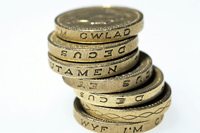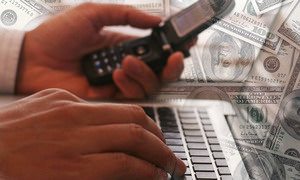Everyone knows that the economy is not the best right now and that losing your job is a reality that everyone must be prepared to deal with. Losing that job you have hard times for a long time is a really tough pill to swallow. Knowing that Unemployment Insurance is at the lowest time it has been since it was established is not any easier. Think about what changes you will be able to make to save some money and make your time off easier.
Handling Hard Times – A Reduction in Your Interest Rate
 Call all of your creditors and ask for either an extension on some payments or a reduction in your interest rate. If you have been a good customer most creditors are willing to at least consider a reduction in interest rates. They would rather get some of their money than none of it at all because you cannot afford payments and the interest rate at the same time.
Call all of your creditors and ask for either an extension on some payments or a reduction in your interest rate. If you have been a good customer most creditors are willing to at least consider a reduction in interest rates. They would rather get some of their money than none of it at all because you cannot afford payments and the interest rate at the same time.
Get rid of all things you do not have to have on a monthly basis, this means anything like gym memberships (you can exercise at home or outside), cable TV services (read a book or get a movie from the library), cut the amount of your monthly cell phone plan, etc.
If you have a high car payment try getting rid of it and trading it in on something that does not have such a high payment or buying a used car instead that does not have a payment at all. This may save you money in insurance costs as well considering that older cars and less expensive ones often carry lower premiums.
Purchase your food in bulk, you can go to wholesale clubs or look for sales on canned goods, dry goods, etc. and buy it in bulk. You get more for your money this way and will have the food longer. You will not have to spend as much time and money at the regular grocery store buying food.
Do not incur any unnecessary debt, when you are not working put away your credit cards and forget that you even have them unless it is an emergency. You certainly do not need extra payments to deal with in this time.
There are jobs you can do online or find online such as mystery shopping or doing tasks on Mechanical Turk that can help you make a few extra dollars here or there. There are things to do online that can help everyone, be careful of scams and do your research before jumping into anything. Remember that you should never have to pay to join a job service.
Find out where your local Department of Health and Human Resources is located and give them a call or go and visit them. There are a lot of programs that are available for people that are low or no income that can offer you help temporarily.
It can be very difficult to make it if you have lost your job or you are just looking for one. These tips and tricks can help you steer clear of a financial catastrophe and you can find a new job in having hard times flat.









